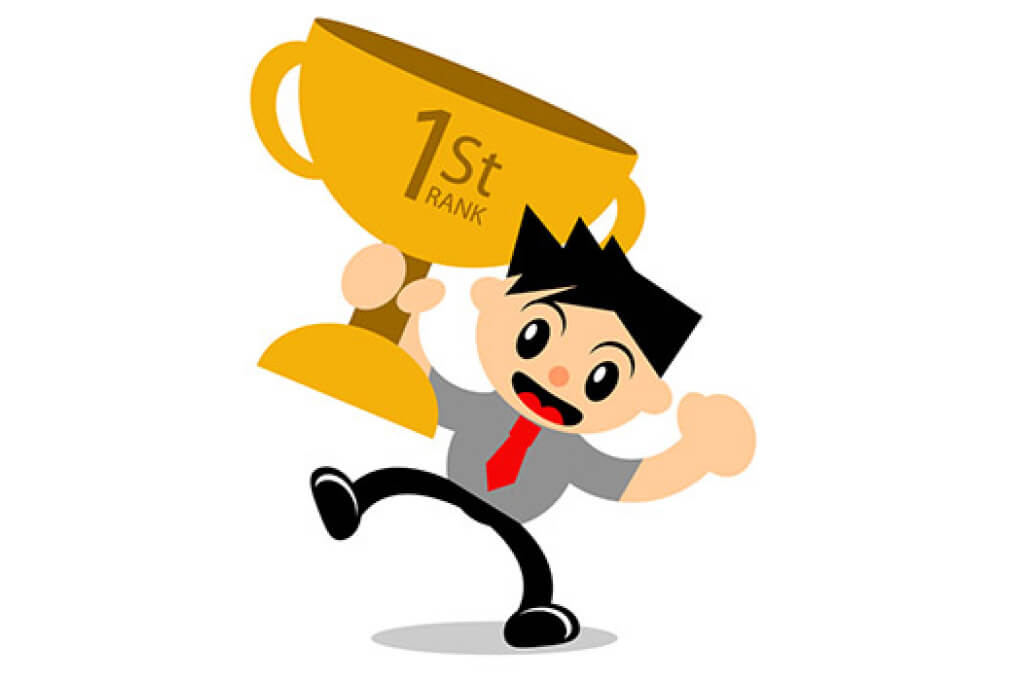Each webmaster is very interested in their site indexing state and its positions in search results. Many users think that good PR is enough to have high ranking levels, but this is not quite true.
We will now review which ranking factors of Magento ® are used by Google search engine.
Basic ranking factors
At the moment, there are over 400 ranking factors in Google search engine, but many of them are still kept secret by the company. It is necessary to not allow unscrupulous webmasters the ability to use them in so-called ‘black hat SEO’. Let us discuss 48 known factors that directly affect the ‘decency’ of your site:
1. The age of your domain name. This is quite an important parameter that directly affects the level of trust to your site.
2. Keywords in the top-level domain name. Their presence is now less important than it was, say in 2012, but it still plays a significant role.
3. A keyword in the first place in a domain name. The users of many web store SEO forums agree that the sites whose domain names include keywords are more relevant than those with ‘hidden’ keywords or without them.
4. The domain registration term. In Google patent document it is said that:
Valuable (correct) domains are paid for several years in advance, while useless (incorrect) domains are rarely used for more than one year. That is why the domain registration expiry date may be used to determine the level of the site ‘correctness’.
Keywords in subdomains also increase the site relevance.
5. Domain name history. Each site has its own domain history. For Google it is very important that a hosting server on which your web store is located would not be changing every month or go down due to overload, otherwise, the search system can remove your site from its database as a ‘bad’ one.
6. A domain name exactly matching your site content. If you have a cosmetic store it would be unwise to call it, e.g. “machining facilities”. Exactly Matching Domain can give your store significant advantage compared to your competitors.
7. Public and private information about a domain name. Do not hide the information about the domain name and its owner, otherwise, Google can take it as a challenge, i.e. if you conceal your identity then something is wrong.
8. Suspicious domain owner. If you have a reputation of a spammer you must get rid of it, otherwise, any site registered to your name will be considered as ‘bad’ by the search engine.
9. Key ranking values on a page level.
10. A keyword in the ‘title’ tag. Never forget to add a keyword to this tag, this is very important.
11. ‘Title’ tab must begin with a keyword.
12. A keyword must be present in the ‘description’ line.
13. A keyword in ‘H1’ tag is highlighting the page header, use bold type or ‘H2’ tag for other keys.
14. The site keyword should appear in the page context and in product descriptions as often as possible. It is important not to spam but use various word-forms and passages.
15. It is considered that a longer article represents its topic in a more detailed way. It is recommended to write texts of 3000 and more words on your site.
16. A keyword should be represented in the first 100 words of text.
17. Watch the density of your keywords. There should not be too few of them but do not become a spammer, too. We recommend using a special formula that allows counting the percentage of keywords in the text. The number of keywords that are present in the text should be divided by the quantity of all words in the text, and then multiplied by 100. The optimal value is up to 5%, but sometimes slight variations are allowed (e.g. in web stores with medical or technical specialization).
18. Remember about Latent Semantic Indexing. These key queries help the search robots to understand the real meaning of a word, if there are a lot of homonyms in the text, e.g. well (good) – well (from which you take water).
19. Add LSI in ‘title’ and ‘description’ tags to positively influence ranking factors.
20. The loading speed of an HTML page on your site plays a huge role in such search engines as Google and Bing. Depending on the loading speed the search engines make conclusions about the quality of the site operation, especially on mobile devices.
21. Do not copy the same content on many site pages, this has a very negative effect on the general system ranking.
22. If the content has to be repeated on the site due to its theme, use the attribute “Rel=Canonical”.
23. The loading speed of one page in Google Chrome browser (sometimes Google search engine uses the databases of this browser).
24. Optimize your images as much as possible, add descriptions and make sure that they have ‘alt’ and ‘title’.
25. Many webmasters hesitate between uploading all products at once and doing that gradually. We recommend uploading as many products as possible once your store is launched because the age of each item is very important.
26. Update your content regularly.
27. Watch the history of the content update, it should be done strictly on schedule: once a day, once a week, etc.
28. Use different tables and lists in your articles because, according to Google specialists, this makes the text more readable.
29. The keyword should be located in tags ‘H2’, ‘H3’.
30. Choose keywords and then write text keeping the direct meaning and word order. E.g. ‘buy washing machine’ is correct while ‘where to buy an automatic washing machine’ is not.
31. Help your colleagues and place several links to relevant sites with good parameters on your site.
32. The content of the sites to which those links direct should be close to your own site content.
33. There has recently been a rumor that Google is going to release a new filter that would filter out sites with a lot of orthographical mistakes, so monitor the quality of your product descriptions.
34. All content must be unique.
35. Create an additional useful service on your site, e.g. online style master, currency converter, etc.
36. A large number of ‘do follow’ links significantly reduces rankings.
37. Any site should contact media materials.
38. Count the number of internal links to a certain page. The best number is 3-7.
39. Try to only use direct links.
40. Remove broken links regularly.
41. The audience activity is also very important. Give your customers a possibility to write comments and reviews, this will confirm your reputation.
42. Partners’ links also positively affect your site relevance.
43. Errors in HTML indicate a bad quality site, make sure all your code is correct.
44. It is important to choose a reliable and trustful hosting provider.
45. Naturally, PageRank is very important. The higher it is the more serious your site is.
46. Try to make URLs shorter.
47. Any page on the site must be available within 3 clicks.
48. Implement ‘search’ functionality on your site.
Also, check the SEO Extension for Magento ® which helps you improve the visibility of your store in the search engines’ results.
Of course, these are not all of the ranking factors for Magento ® but they are the main ones. If you need a more detailed consultation please consult with GoMage specialists.




